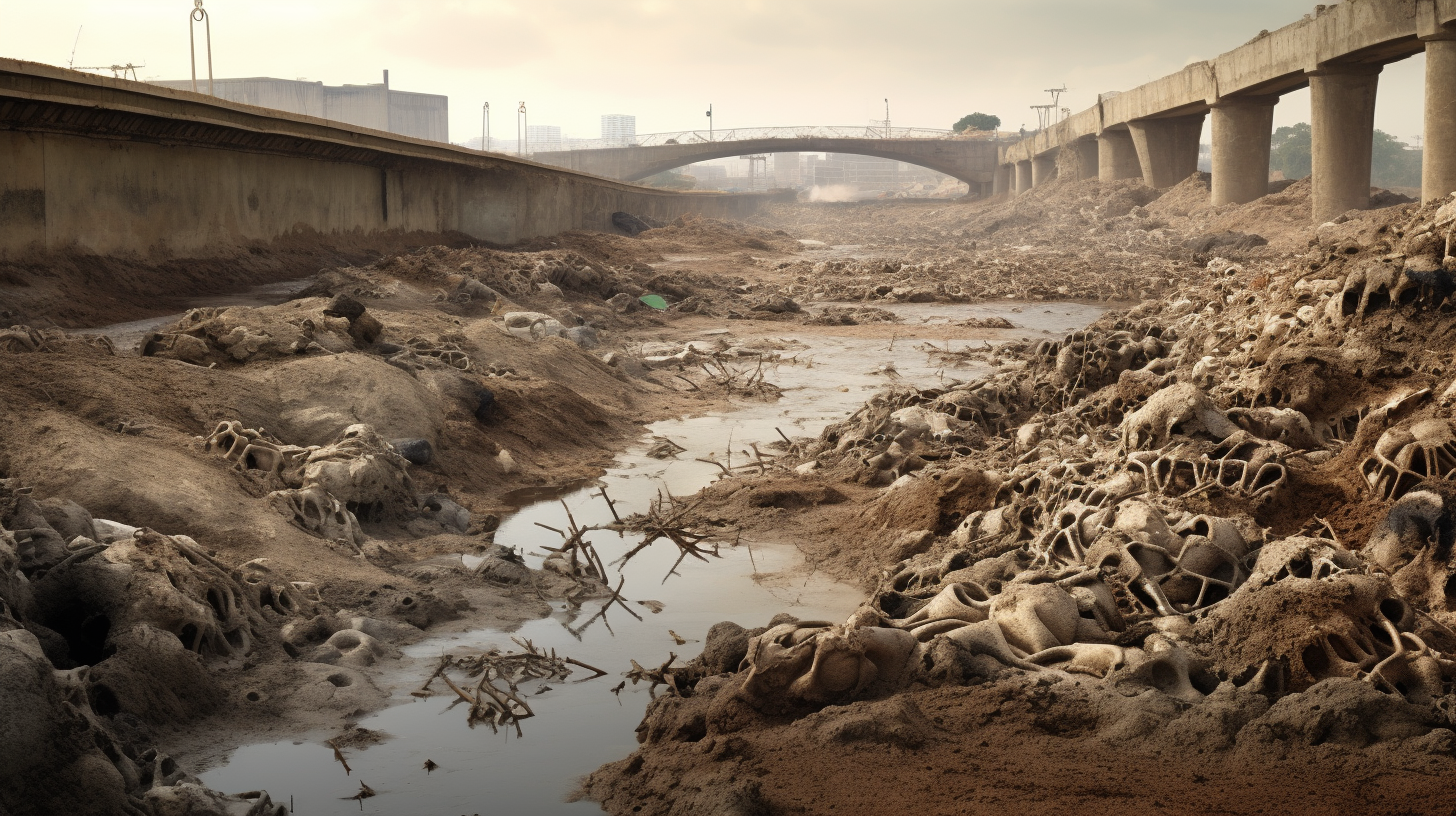In the shadow of Inferno Oceans, where once great waters surge with unthinkable heat, an equally harrowing tale unfolds in our arid landscapes – the birth and demise of Hydro-Civilizations. This narrative of parched earth is not merely an elegy but a dirge for a world throttled by its own thirst. Here, we explore the precipitous ascent of societies that have risen from the dust, sustained entirely by the lifeblood of vanishing rivers and the ingenuity hewn from desperation.
Hark, the sporadic downpours, so go the hushed whispers in the lingering dusk of our planet – ‘Rains of Ruin’. These erratic monsoons, once celebrated as harbingers of fertility, now cast a pall over the remnants of what were once bustling Hydro-Civilizations. Earth’s altered rhythms forge a narrative in stark contrast to the once-promised abundance; what falls from the heavens no longer engenders life but delivers the final blows to infrastructures teetering on the brink of collapse.
The labyrinthine aqueducts and colossal dams, monuments of a lost epoch, showcase the pinnacle of human achievement and juxtaposed failure. Where children once splashed in the waters of imagination, now lay the dry riverbeds like scars across the heart of our planet. The bittersweet irony of societies completed in their absence. Cities such as these, built on the promises of unending water, groan under the weight of disillusionment, their pipelines parched, wells resembling gaping maws of desiccation – a planet’s cry for the nurturing touch of rain.
But let us delve deeper into the tale of two cities – the once-verdant Eden, itself a jewel built upon the harnessing of a grand river, and Neoma, the resilient hub born from the dust, now facing the dust’s embrace once more. Eden, with its expansive green rooftops and hydroponic farms, stands testament to ingenuity turned folly. Neoma, the metropolis of recycled water and the specter of vast desalination plants, remains a haunting reminder that survival in this world exacts its cruel price.
One might ask, ‘Where did we go astray?’ Yet, as the last drops trickle from Eden’s faucets, the truth reflects a stark reality – a planet not saved by its own inhabitants. The architects of these civilizations envisioned a future where water would flow as freely as commerce, but instead, it acts as a capricious currency, bestowing life and doom with equal disregard.
In this desolate tableau, new societies brew beneath the surface, cults of the Drought worshiping every ephemeral puddle as sacred. Sects clinging to the sanctity of moisture, where clouds are divined and prophecies spill from the cracked lips of the dehydrated devout. Yet, in this omnipresent drought comes the spark of innovation. Black markets of water thrive, powered by clandestine tech, moisture vaporators obscured by the ruins, hoarding every droplet like the world’s most covetous dragon.
And what of the oceans? Those spectator seas, warm enough to draw forth a devil’s sigh but now distanced from our immediate plight. Their salty basins offer no reprieve to the thirst of the landlocked desolation. In this dichotomy of extremes lies a stark lesson: even as technology strives to summon salvation from the brine, it is but a testament to the finality of our estrangement from nature herself.
The visage of world’s end may not be clad in the fire, nor in ice, but in a barren, parched silence. A warning to all who would listen, delivered by the husk-like remnants of humanity’s greatest gambles. Though we may wade into the mirage of future tales with trepidation, our chronicles persist as the ink dries on history’s last page.
As we resign to read the heavens for the next anomalous deluge, the Rains of Ruin, one final thought lingers in the arid air. It is in the contemplation of our desolate Earth, amidst the paradox of water’s absence and presence, that we find a somber reflection of our journey – a fleeting epitaph for a civilization that could not quench its own undoing.
